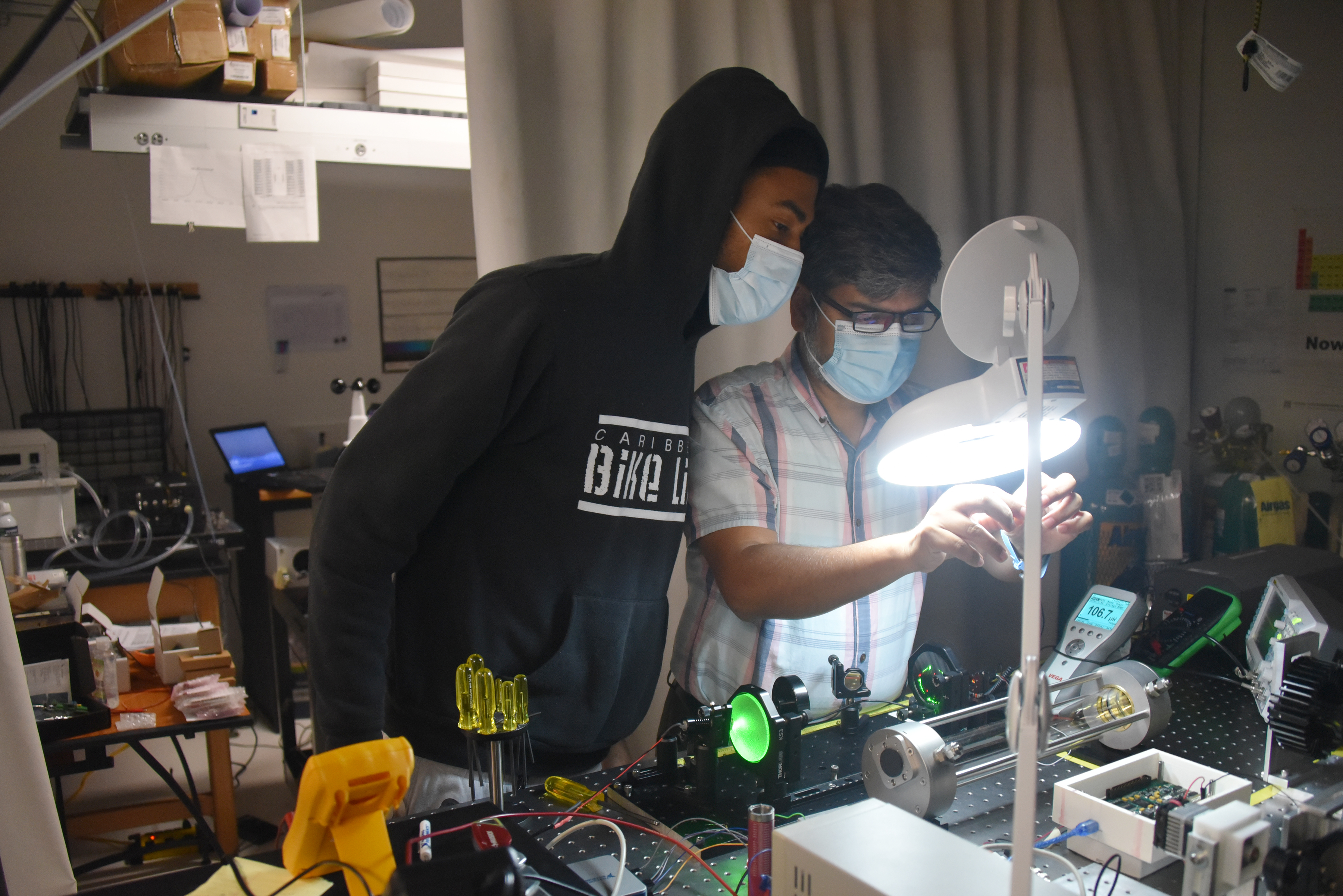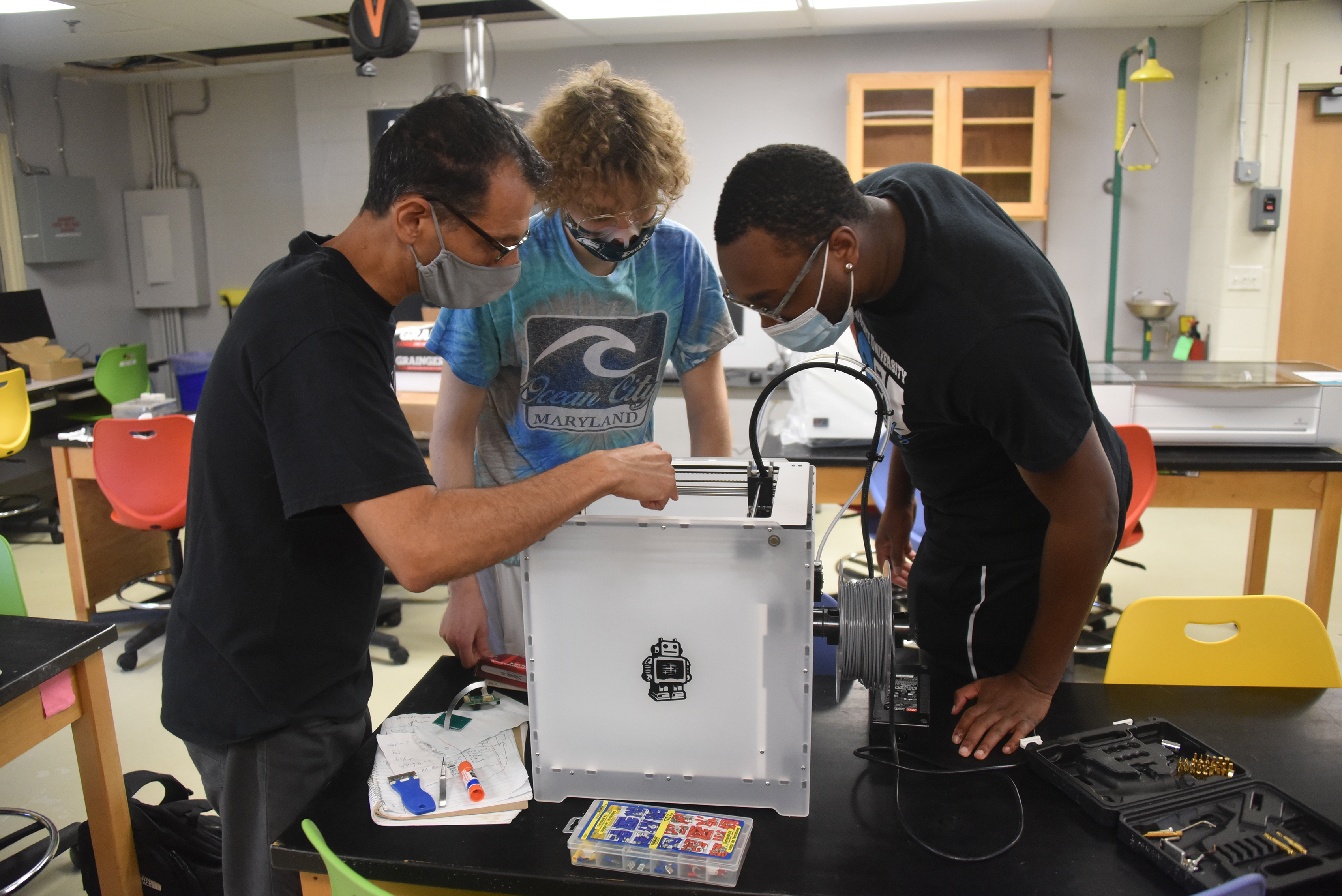
Dr. Mohammed Khan awarded two grants
National Science Foundation (NSF) and the Department of Defense (DoD recently awarded separate grants totaling more than $700,000 to Dr. Mohammed Khan, Associate Professor of Optics at Delaware State University, and the Principal Investigator for the following two NSF-funded projects:
A three-year $529,968 DoD grant has been awarded for research entitled “Ultra-High Precision Sensing of Isotopic Signatures using Mid-Infrared (Dual) Frequency Comb Spectroscopy.”
The research will play an important role for basic research in optics and chemical sensing relevant to initiatives by U.S. Army research programs – which are specifically under the interdisciplinary areas of optics, earth sciences – to better understand modern day threats such as chemical warfare agents and explosives.
Dr. Khan is working on the project with researchers from the U.S. Army Research Office/Laboratory.
A two-year $199,714 NSF grant will fund a project entitled “Catalyst Project: Enhancing Undergraduate Research, Innovation and Education in Engineering and Computer, as well as the Integration of Smart Sensors Design and Citizen Science.” This project will facilitate student innovation and entrepreneurship, which will involve the design and development of independent projects that will deliver field prototypes of environmental and human health sensing and monitoring systems.
Low-cost, high-precision and portable technologies and field-based engineering prototypes developed in the project will address key societal challenges pertaining to the impact of climate change, and indoor and outdoor pollution on underserved communities.
The project will also involve the DEL-AWARE Citizens Science Program, involving a diverse group of participants from academia, local environmental agencies/organizations, communities, schools, hospitals and health services in the First State.
In addition to Dr. Khan, Dr. Marwan Rasamny, chair of the University’s Division of Physics, Engineering, Mathematics and Computer Science, is the co-Principal Investigator of the Catalyst Project.
Some of the Catalyst Project work take place in the Division’s “Makerspace” – a lab in the Mishoe Science Center that provides students with technology resources and raw materials to inspire innovation.

